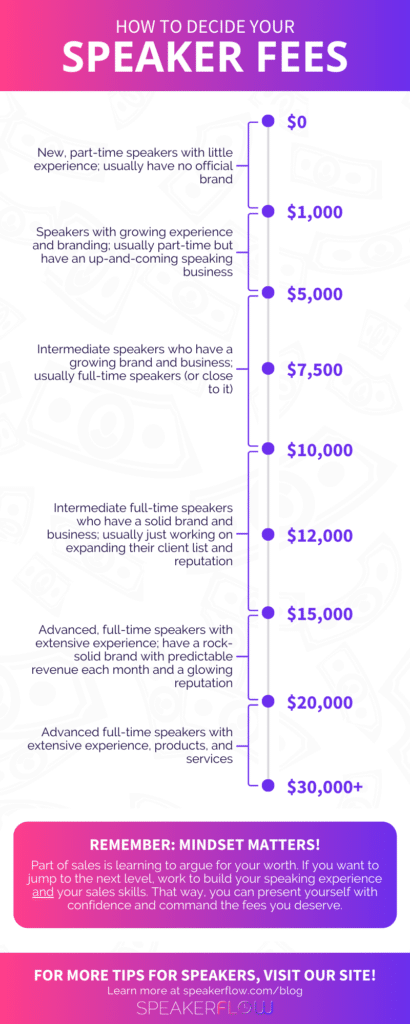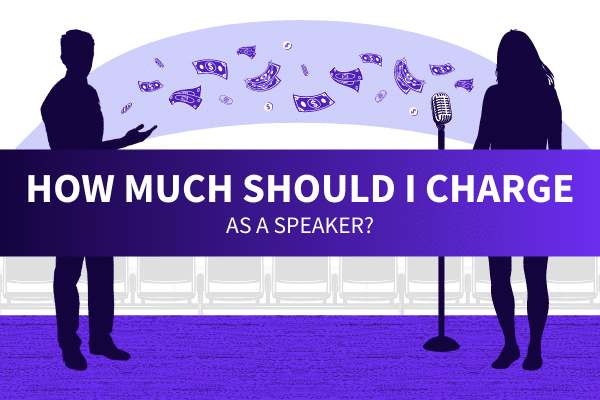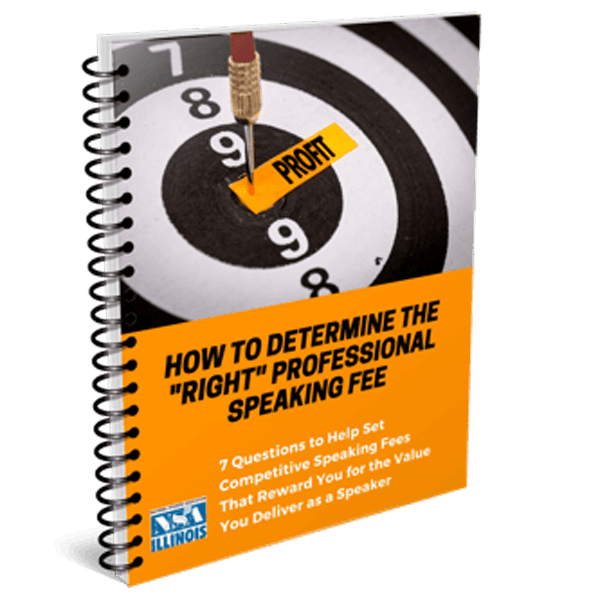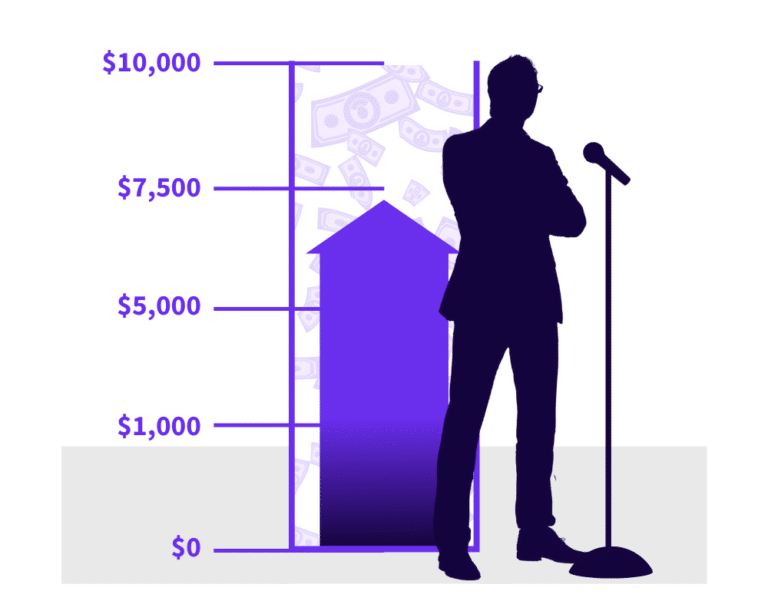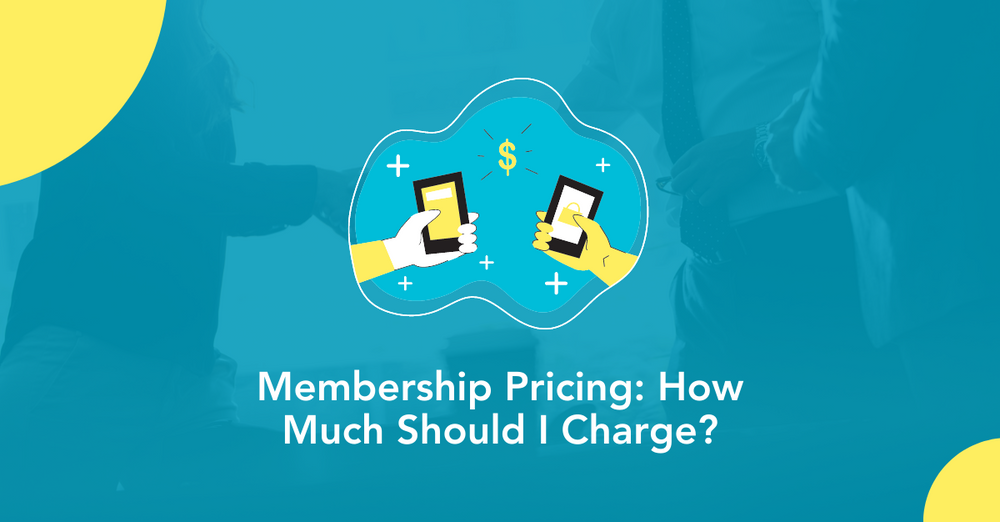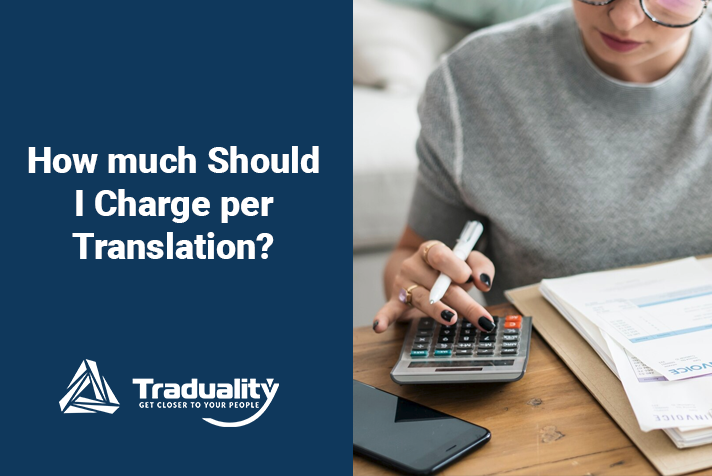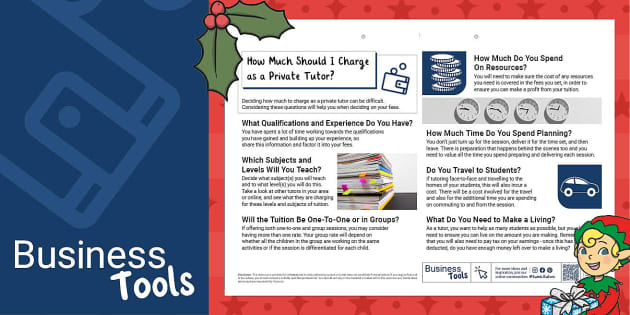How Much Should I Charge For A Speaking Engagement

Imagine standing on a brightly lit stage, a sea of expectant faces gazing back at you. The microphone feels warm in your hand, and a hush falls over the crowd as you prepare to share your hard-earned wisdom. The energy is palpable, but a nagging question lingers in the back of your mind: "Am I being fairly compensated for this?"
Navigating the world of speaker fees can feel like traversing a minefield. This article aims to provide a comprehensive guide to help speakers determine appropriate rates for their engagements, ensuring they are valued for their expertise and time.
Understanding Your Worth
Before diving into specific numbers, it's crucial to assess your own market value. Several factors influence what you can realistically charge.
Experience and Expertise
Your level of experience is a significant determinant. Seasoned speakers with years of experience and a proven track record command higher fees. Think of it like this: would you pay a premium to a heart surgeon who has performed thousands of successful surgeries?
Similarly, the depth of your expertise in a particular niche matters. Are you a leading authority in your field, or are you still building your reputation?
Audience Size and Type
The size and type of audience also play a crucial role. A keynote address to a conference of 1,000 attendees warrants a higher fee than a workshop for a group of 20.
Corporate events typically have larger budgets than non-profit organizations or academic institutions.
Presentation Format and Length
A short, 30-minute presentation will naturally command a lower fee than a full-day workshop. Are you developing custom content or using a pre-existing presentation?
Consider whether you're expected to participate in Q&A sessions, networking events, or pre-event calls, as these add to your overall time commitment.
Researching Market Rates
Once you've assessed your own value, it's time to research prevailing market rates. Several resources can help you benchmark your fees.
Speaker Bureaus and Associations
Speaker bureaus often have insights into industry averages. They can provide a sense of what similar speakers are charging.
Organizations like the National Speakers Association (NSA) offer resources and networking opportunities that can help you understand industry standards.
Online Databases and Platforms
Websites such as SpeakerHub and eSpeakers allow you to browse speaker profiles and sometimes view fee ranges.
These platforms can provide a starting point for your research.
Networking with Other Speakers
One of the best ways to learn about speaker fees is to connect with other speakers in your field. Attend industry events and join online communities to build relationships.
Sharing experiences and insights can be invaluable.
Setting Your Fee
With a clear understanding of your value and market rates, you can confidently set your fee. Here are some common pricing models:
Flat Fee
A flat fee is a fixed price for your speaking engagement, regardless of the event's specifics. This is a simple and straightforward approach.
It's important to clearly outline the scope of services included in the flat fee to avoid misunderstandings.
Per Diem
A per diem fee covers your daily expenses, such as travel, accommodation, and meals. This is often used in conjunction with a speaking fee.
Ensure that your per diem rate is reasonable and aligns with industry standards.
Value-Based Pricing
Value-based pricing focuses on the value you bring to the audience and the event organizer. This approach justifies higher fees if you can demonstrate a significant return on investment.
Consider the potential impact of your presentation on the audience's knowledge, skills, or motivation.
Negotiating Your Fee
Negotiation is a crucial part of securing speaking engagements. Be prepared to justify your fee and be flexible if necessary.
Understand the event organizer's budget and be willing to discuss alternative arrangements, such as reduced fees in exchange for marketing opportunities.
Conclusion
Determining your speaker fee is a balancing act. It requires a thorough understanding of your value, market rates, and negotiation skills. Remember, confidence in your expertise, combined with diligent research, will empower you to secure fair compensation for your valuable contributions.
As you step onto that stage, know that you are not just sharing your knowledge, but also your passion and dedication. Charging a fair fee ensures you can continue to do what you love and inspire others along the way.
